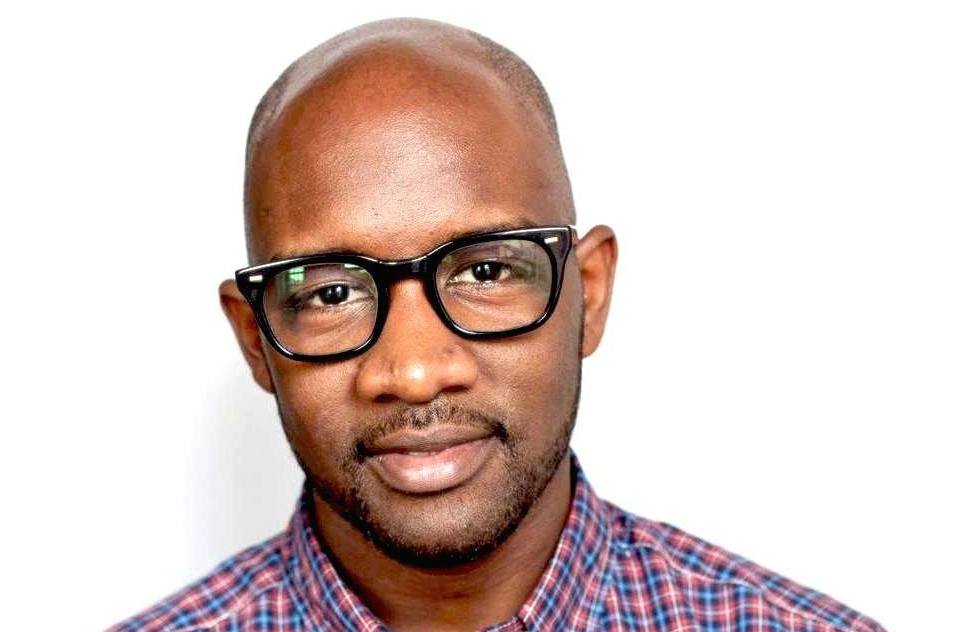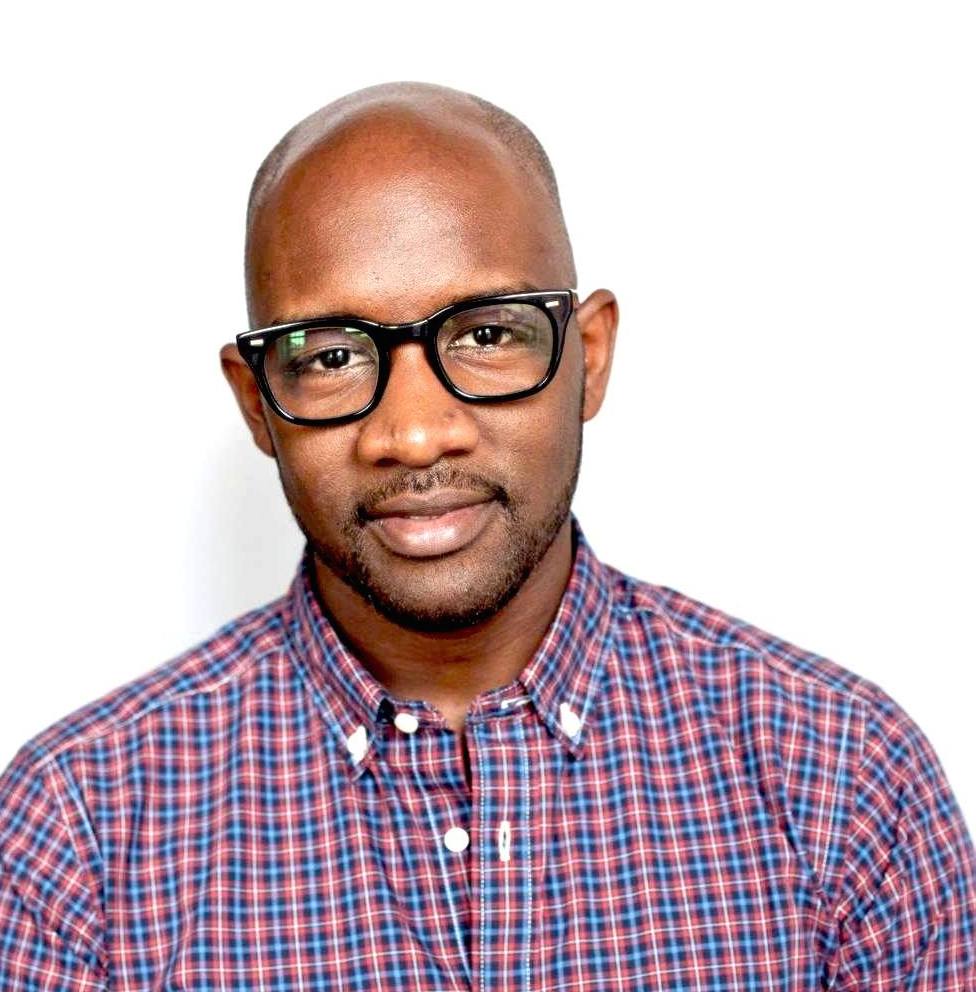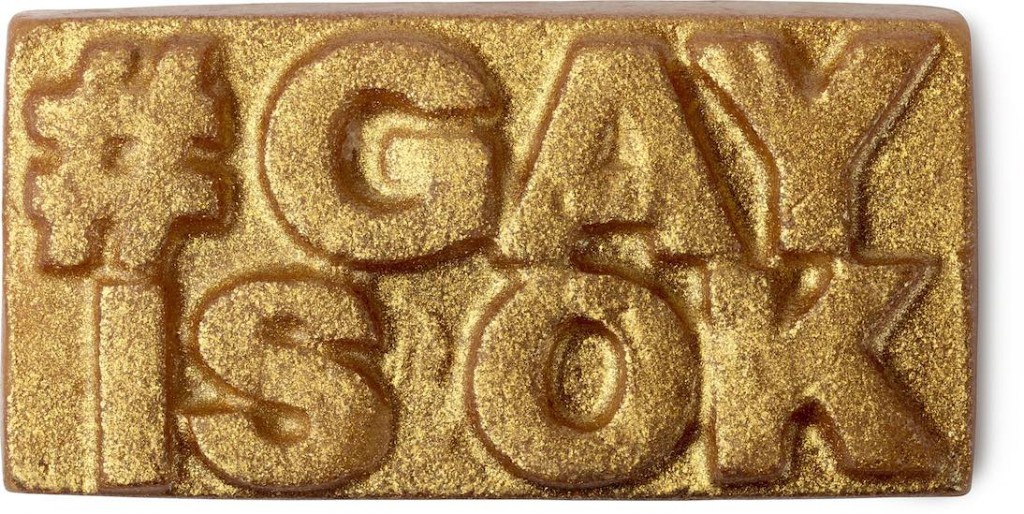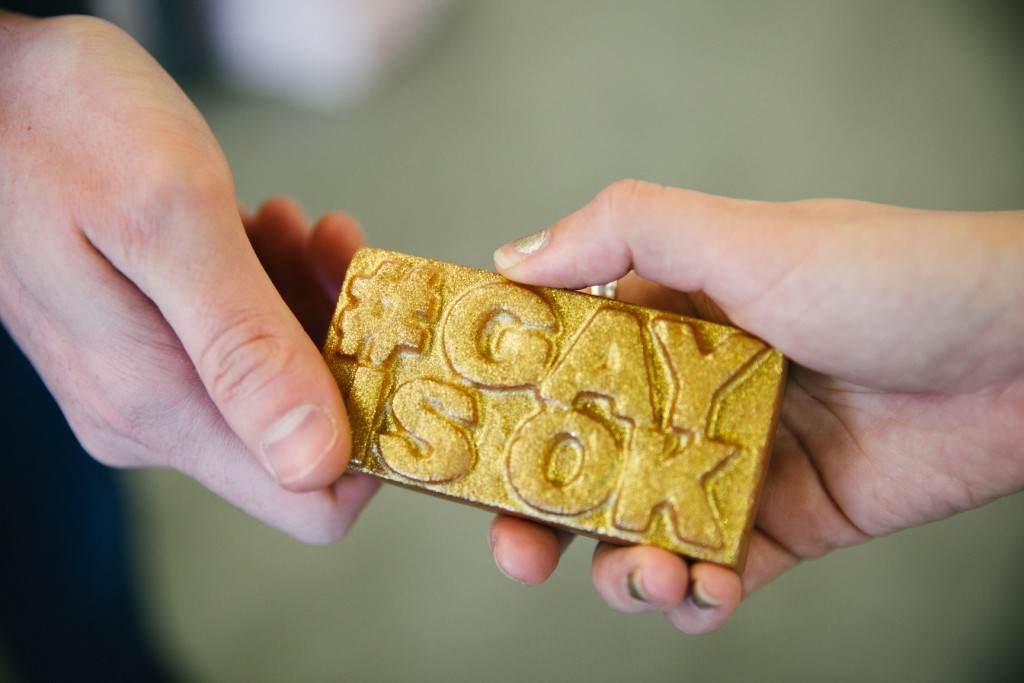Meet the man going ALL OUT for Pride

Andre Banks is the man behind one of the world’s biggest global LGBT rights movements. All Out proudly boasts 2.2million members who have each taken an action or actively participated in its campaigns simply by signing up and adding their names to the petitions that are circulated on a regular basis.
My first encounter with Banks was when I approached UK gay rights activist Peter Tatchell about staging an International Day of Protest ahead of the G20 meeting in 2012 to speak out against Russia’s treatment of LGBT people. Tatchell suggested partnering us with All Out, and the result was dozens of protests all held around the world with the same purpose – to support international LGBT people in countries in which they were being oppressed. Our own UK protest outside Downing Street attracted thousands of supporters, and directly resulted in Prime Minister David Cameron raising the issue directly with President Putin at the G20.
With Pride weekend upon us, I met with Banks (pictured below) to find out more about the organization that is doing its very noticeable part to help make life a better for gay people around the world…

Cliff Joannou: What’s All Out about, like describe it to somebody who’s never heard of the organisation…
Andre Banks: We are a global movement of millions of people in every country in the world who come together to stand up for love and equality. I like to say that we’ll do whatever it takes to make sure that people can be who they are, love who they choose, without having to fear of being thrown in jail, having to sacrifice their family or their dignity. We consider ourselves an LGBT rights organization, but we also think of ourselves as even a little bit broader than that, like we really want to change policy, we want to change laws, but we also want to change hearts and minds. We know that if you change every law that’s discriminatory that doesn’t mean that a kids parents aren’t going to kick him or her out of their house. It’s not going to stop you from being fired at your job, or somebody treating you bad on the street, so we want to also really be changing people’s minds.
So this campaign, what’s the purpose, what’s its aim? And how is it reaching that aim?
There are still 76 countries where it’s a crime to be gay. One of the big issues is visibility. What we wanted to do with this campaign was to take it to Lush customers and have them take it to their social networks, so we could really get millions of people learning about, educated about and active on making a change in these parts of the world. The second big challenge is support for the people who are on the ground in the countries where it’s a crime to be gay, that discriminate against you in your job and all these other places, doing this work day-to-day, even organising a Pride march or where doing that kind of work is just so challenging. So, the proceeds from the sale of the soap will go to help grassroots activists around the world keep pushing for these campaigns. It’s raising awareness and then raising money, for those people who really put their lives on the line to stand up for a love of equality.

How did it get started?
In the way that ideas start, which is small, and they kind of like, become big, myself and a friend, Jeremy Hymans, who’s an Australian based in New York, had this conversation… it was the first time that we met and we were throwing around a bunch of ideas and we started talking about the crisis going on around the world and we said ‘What if you had millions of people who were connected, who were willing to stand up for fights, where they are and around the world?’ Wouldn’t that be amazing if you could bring people power and money and all the things that you need to really get the world’s attention? We decided to give it a try with a few hundred of our friends and family who signed up to become a part of it. Within six months a lot had grown to 500,000 people who were in almost every country in the world. People participated in the campaigns, they shared it with their friends, their friends participated, and it really grew that way.
What was your first campaign?
It was a campaign that was focused on a woman named Brenda, who was an asylum seeker here in the UK. She’d been in the UK for eight years. Somebody had found out that she was a lesbian back in Uganda and they had threatened her partner. They’d burnt down her home in the village where she was staying so she fled, came to the UK and was seeking asylum. Not to go too deep into the story about her asylum case, they’d basically decided that she was not really gay, so they were trying to make her prove that she was a lesbian. Long story short they were going to deport her back. A local politician in Uganda got wind of this and said he would be there to meet her at the plane to make her repent and reform, so there was a clear threat to her life. We asked All Out members, which I think was about maybe 2000 people, to send a letter to Theresa May, asking her to stop the deportation and to give Brenda a fresh case where she could actually prove that she was really a lesbian and in danger. In three days we went from a few hundred people signing that to 60,000 people sending letters to Theresa May’s office. It became front page news. That was on a Monday of that week and they had booked her a ticket to go back to Kampala on that Friday. I remember on the Friday morning we heard that they had taken her to the airport from the detention centre, and were going to put her on the plane. We were making a thousand phone calls and trying to figure out what to do next. At the last minute, a judge issued a stay in the case, they took her off the plane, brought her back into the country. I will never forget it.

What motivates you to do the work?
Initially, it was the scale of the injustice that drew me to be interested in it, but I think what keeps me inspired is the people who are in countries like Uganda, Nigeria, China, Russia who day after day keep this fight going. Those people are the bravest and most inspiring activists in the world, and they really keep all of our work going. That’s why we wake up in the morning – to really throw our support behind the work that they’re doing. All Out never start campaigns in the world that aren’t done with a local partner, so we’re always partnering up with those groups who are really on the frontline.
People are often like ‘Oh, my signature won’t make a difference’, but actually everybody’s signature makes a difference because every one eventually adds to 50,000 names.
Exactly, and the reason that people have signed these ten million signatures is not because of me, it’s because of persons like this guy we worked with in China whose parents sent him to a clinic, a gay cure clinic. They used shock therapy and all these terrible things to like convert him to being straight. After going through that process they decided to sue the Chinese government, and actually won in the end, to get them to make sure that hospitals couldn’t do this again. That’s what really inspires me and All Out members when we’re working.
Who are some of the activists around the world that you admire?
One is a woman named Alice Nkom Cameroon, an LGBT rights lawyer. She’s amazing, we’ve done a bunch of campaigns to support her and her work, but Alice is the person who is going to the jails and seeing the LGBT prisoners who nobody else will talk to, or feed or pay attention to. She’s bringing them food, she’s bringing them letters from their families, she’s the total package and she’s a grandma! So she’s incredible, she’s an inspiration.
There’s also this woman named Georgina in Brazil who we started a campaign with there a couple of years ago called the Equality Moms and basically the idea was to get the mums of LGBT people to come together and speak out against homophobia in the country. Brazil’s one of those places where the laws on the books aren’t terrible, but it’s the most violent place in the world to be an LGBT person, so the actual lived experiences are really tough. We got all these mums together to basically say ‘love is a family value and we should be treating our LGBT kids the same way we treat our straight kids’.
Any others?
We’ve been working with these five women in China, young women all in their twenties and they’ve been activists around women’s and LGBT rights. On International Women’s Day they were handing out leaflets in Beijing that basically were about domestic violence and a bunch of government officers swooped in and took them off to jail and nobody really knew what was happening with them. So we were part of a campaign helping to get them out. Hillary Clinton was sending out tweets to the Chinese government saying ‘release these five women who have been arrested on International Women’s Day’. They’re currently a big inspiration.
How do we deal with Russia’s anti-gay stance?
One of the things we always say is that this kind of change takes time; it took a lot of time in the US, it took a lot of time in the UK, to get to a place where you’re going from total oppression to much more openness and legal equality, and I think countries where these debates are happening have to have that time as well. I mean Stonewall was 1969, and there are still people passing anti-gay laws in the US, and so it really is a long curve. I think as a movement what we need to do is make sure that those people who are starting that conversation in places like Russia and Uganda don’t get stamped out, get the world’s attention, and get very powerful allies behind them so that they can continue the work.
Is it right to withdraw aid from anti-gay countries?
I think that that’s usually the wrong tactic. I think that governments have a pretty big toolbox of ways to constructively influence and move people toward better, more just policies. At the same time I think that no country should be doing business as usual with a country that’s throwing people in jail because they’re gay. I think you can’t say on one hand I believe in standing up for human rights and on the other hand, do business with a country that has just given an entire group of people second-class status. But what you hear from a lot of activists on the ground is it’s more powerful if these countries change from within than because of pressure from outside. It’s perceived totally differently and actually means something different for an average LGBT person who’s in those countries.
So, it’s about supprting the heroes in those countries, like Alice Nkom?
Exactly.
The #GAYisOK soap is available in 825 LUSH stores globally, aiming to raise £250,000 for LGBT causes. £50,000 will go directly to All Out to help with their campaigns. Other LGBT organisations can apply for grants of up to £10,000 to help fund their work. www.lush.com
